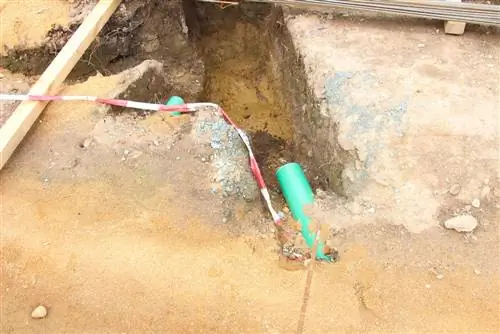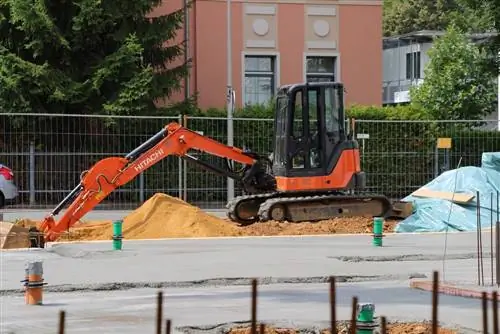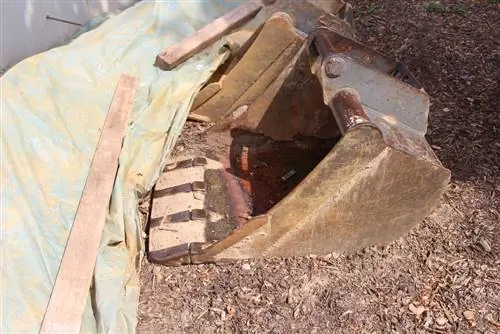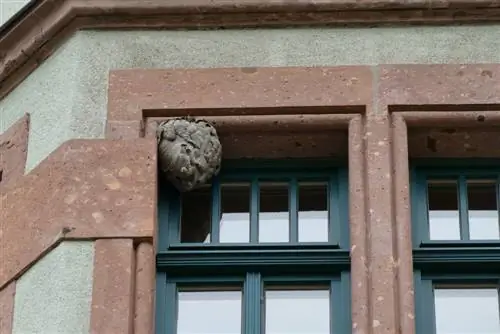- Author admin caroline@plants-knowledge.com.
- Public 2023-12-17 03:39.
- Last modified 2025-01-24 12:45.
If you want to build a new building, you need a piece of land. The size, location and, last but not least, the purchase price are the decisive criteria for the future homeowner when choosing a property. But can you really rely on it safely? What about the deeper layers of the earth? What important role do they play? A soil report should provide sufficient planning security with its information.
What is a soil report?
A subsoil report is a report that provides information about the nature of a soil with regard to its suitability as a building site. It contains the results of the exploration and examination of the building site. It also includes the expert assessment of these results by the expert and the resulting consequences for the planning of the building. It contains, among other things, the following information:
- the bearing capacity of the soil
- Information about groundwater
- Description of geology
- possible ecological burdens
- Percolation ability and frost resistance of the soil
- Soil type and soil class
- Specifications for sealing the building
A soil report provides information on geological features of the building site in good time before construction begins and thus gives the builder planning security.
Problems that groundwater can cause
The groundwater in the deeper layers of the earth can cause problems with the constructed building. It is therefore important to investigate its behavior before construction begins. The biggest problem is the so-called pressing water, which puts pressure on the building's seals. This is particularly the case when seepage water cannot drain away well or the groundwater table is generally high. If this is known before construction begins, appropriate measures can be taken. A cellar, for example, needs drainage so that the walls do not get damp. But even houses without basements are not safe from water in the ground and also require suitable measures.
Detecting toxic contaminated sites

If the future building site has already been used as commercial space, the soil should be thoroughly examined for contaminated sites. It may well be that there are still toxic substances in the soil. The property owner is responsible for removing the contamination. If you as a future builder want to avoid high disposal costs, it is best to get clarity before purchasing. A soil report can provide certainty here. However, this examination is not mandatory as part of a soil examination for the soil report. It is only required for properties where contaminated sites are suspected. This is the case if companies have worked with environmentally harmful substances on these properties. If you want to be on the safe side, you should order this additional service. Especially if a kitchen garden is to be planted on a large property, the soil quality must be pure so as not to endanger human he alth.
Duds, an old problem
Many aircraft bombs from the Second World War lie dormant in the earth, undetected. Even decades later, many of them still pose a danger. Properties in cities are particularly affected. In some municipalities there is even an obligation to investigate if the property is located in designated suspected areas. The inspection costs are usually borne by the property owner. These costs as well as time delays until the unexploded bomb is defused must be taken into account in certain areas. It therefore makes sense to take this eventuality into account in good time.
Is a soil survey mandatory?
Every structure has a significant weight that rests on the ground underneath and must be reliably supported by it. To do this, you need to know whether the chosen subsoil is sufficiently stable for the planned construction project. Otherwise there is a risk of damage to the new building and possibly also to neighboring buildings. A geotechnical report, the official name for the subsoil report, is therefore an important basis for the planning and implementation of construction projects. It serves primarily as a basis for calculating the statics and the strength of the foundation. A subsoil report has therefore been required by building regulations in Germany since 2008 for all undeveloped properties where a construction project is pending. This obligation does not apply to properties that have already been developed.
Note:
It is not sufficient to draw conclusions from soil tests on a neighboring property. Even over small distances, serious deviations are possible, which is why a separate soil test is required for each property.
All risks arising from the building site are borne by the builder, i.e. the property owner. Every house builder should deal with this in good time and clearly regulate the implementation and the assumption of costs. It is therefore advisable to have the soil report carried out by the seller in order to be sure that the land is buildable before you buy it. As a seller, it is also advisable to have a building report prepared, as this can be easily incorporated into price negotiations.
What are the benefits of the soil report?
If a soil test reveals a problematic building site, the building project does not necessarily have to be abandoned. From the problems identified, construction measures can be derived that will give the new building a long-term, secure footing. If the results of the investigation are known before planning, this can be aligned in a timely manner. Every measure required increases the overall cost of construction. Depending on the scope, these costs can be so high that construction is no longer possible or no longer worthwhile for financial reasons.
If a building is constructed without knowing the nature of the soil and without the necessary protective measures, this can result in high follow-up costs. Damp walls, for example, lead to the formation of mold, which is labor-intensive and expensive to remove, not to mention the he alth consequences. Sagging or cracks can also result. The subsoil report is a useful instrument simply to avoid these later defects and incalculable follow-up costs for their elimination.
When should you think about a soil report?

If you buy an “old” house, you neednosubsoil report. A soil report is required for thefuture house builder so that the planning of the construction project and the costs can be planned accordingly. It should therefore be created during the purchase of the property, but at the latest when planning the construction. If the condition of the soil is determined before purchase, you can be sure not to spend money on an unusable piece of land. The necessary security measures could also prove to be so expensive that looking for an alternative property makes more sense.
The agreement on the preparation of a soil report must be included in the construction and purchase contract, especially for buildings with a fixed price. Architects have a duty to inform building owners of the need for a soil report.
Who writes the soil report?
A geotechnical expert has the professional qualifications to prepare a subsoil report that indicates the procurement of the subsoil. He must be authorized to prepare a report in accordance with DIN 4020 and DIN 1054. You can find an expert via the Yellow Pages or the Internet. Various builders' associations and the Chamber of Crafts can also help you find an appraiser nearby.
Tip:
Ask your architect for a recommendation. He regularly works with soil surveys and can certainly point you to experts with whom he has had good experiences.
How is a soil report prepared?
In order for a soil report to be prepared, the condition of the subsoil must first be analyzed using various technical methods. Appropriate soil samples are required for this. These are removed from a suitable location with a core drill. As a rule, drilling is carried out at the future corners of the planned building. The hole goes about three meters deeper than the planned foundation of the house. The different soil layers in the sample provide insights into the load-bearing capacity and water conditions of the subsoil.
Tip:
Before drilling, the floor plan of the building and the exact location should be determined so that the soil test can be carried out in the “right” place.
How much does a soil report cost?
The costs for a subsoil report depend on the size of the planned building and the scope of the investigation commissioned. For a single-family home of average size up to around 200 square meters, the price for a basic report is between 500 and 1,000 euros. There are also regional differences in the price of the soil report.
If the soil expert provides additional services, the price increases to 2.000 to 2,500 euros. Additional services include, for example, determining water permeability or building chemical water analysis. However, the additional cost for a soil report may be well spent. The costs for eliminating defects caused by poor subsoil can be significantly higher.






